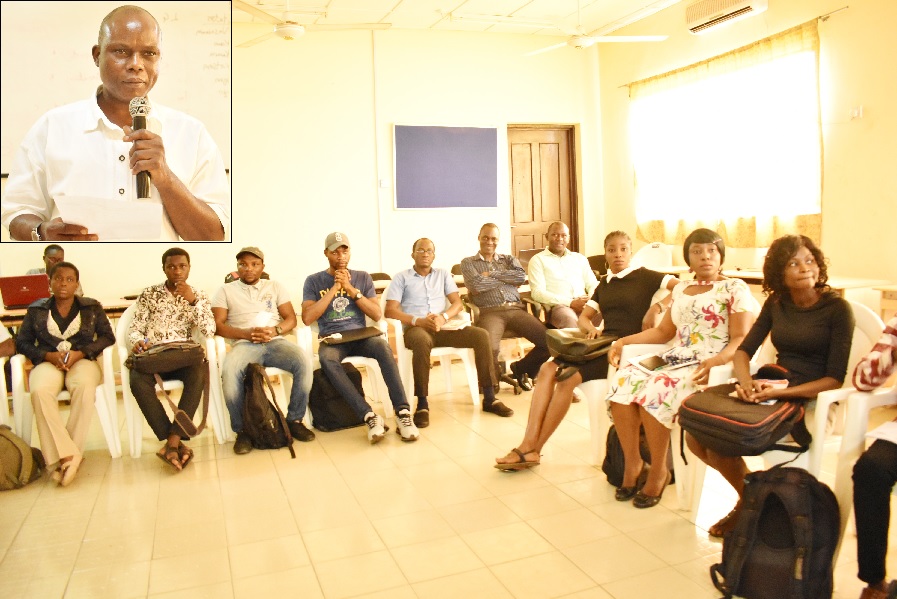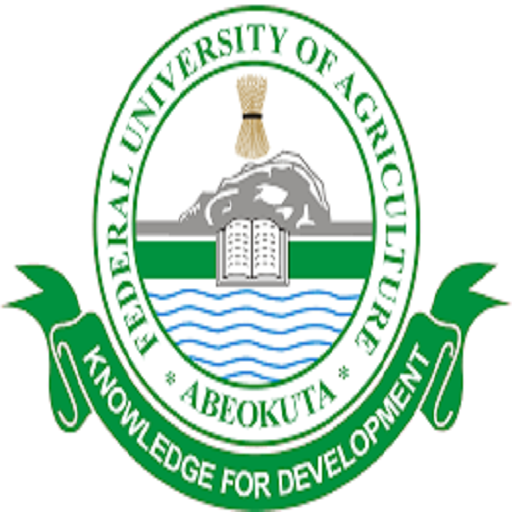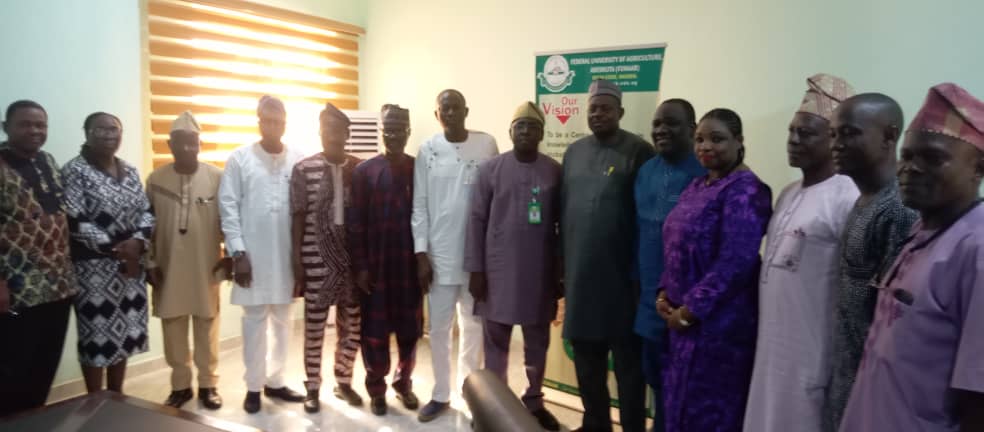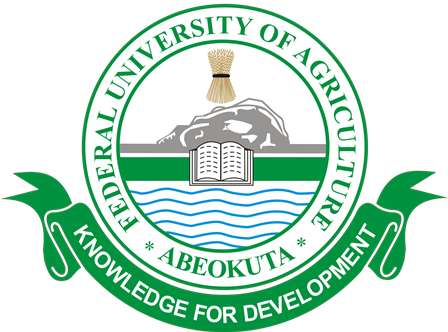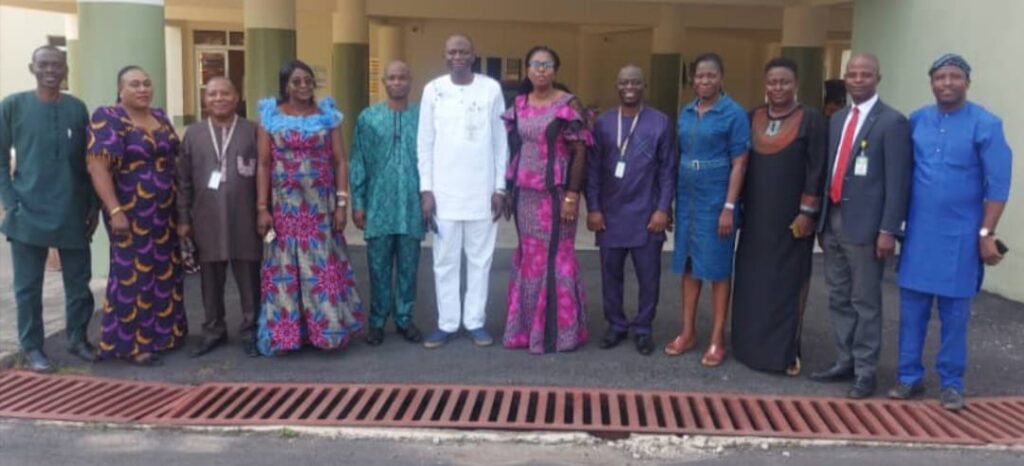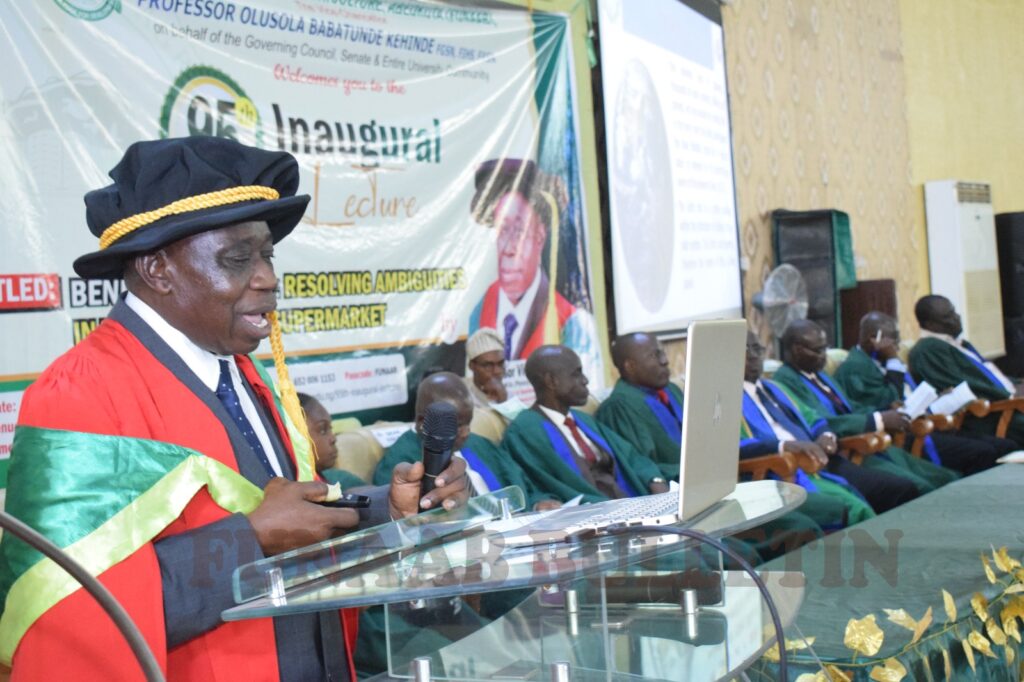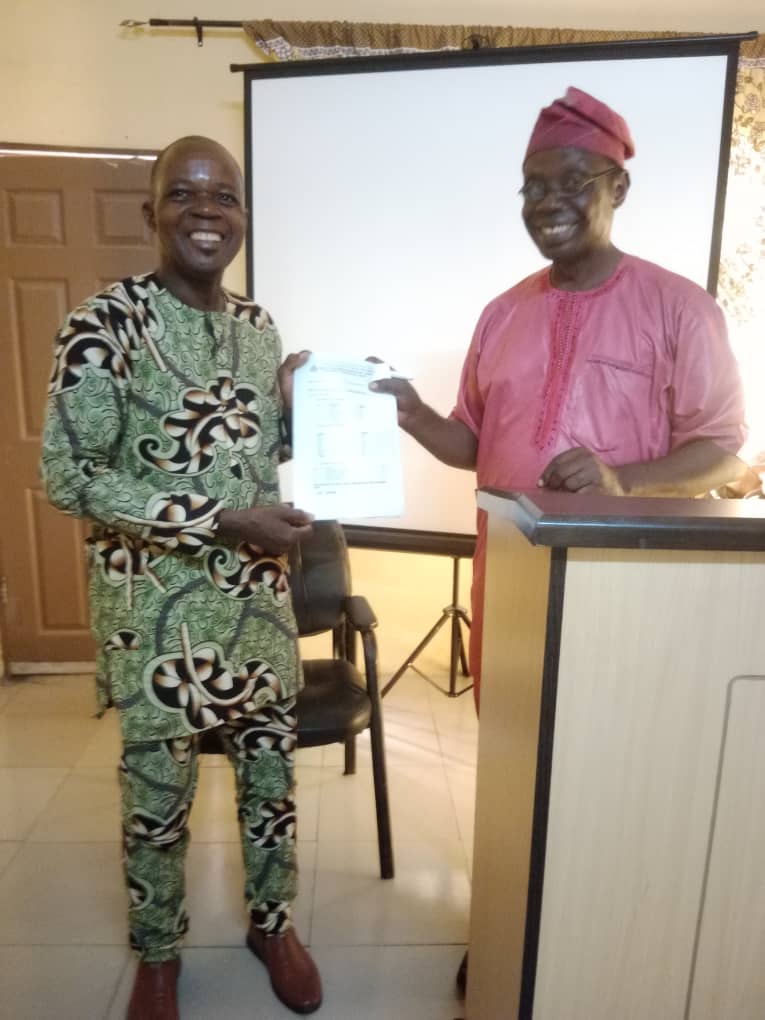The Federal University of Agriculture, Abeokuta (FUNAAB), in conjunction with the Human Heredity and Health in Africa (H3ABioNet), a Pan African BioInformatics Networks for Africa in Cape Town, South Africa has organized a BioInformatics Training for scholars and students.
Declaring the Training open, the Vice-Chancellor, Professor Kolawole Salako, who was represented by the Director, Information & Communication Technology Resource Centre (ICTREC), FUNAAB, Professor Adesina Agboola welcomed and congratulated the participants.
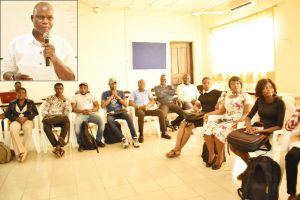
He described the participants as privileged to be selected for the Training, which according to him is internet driven.
The Vice-Chancellor also said that the Training will be on for the next three months, describing Bioinformatics as a discipline that cuts across every facet of Biotechnology.
The Vice-Chancellor also disclosed that FUNAAB is among the six Universities in Nigeria that are taking Introduction to BioInformatics (IBT) course, charging participants who are not from FUNAAB to feel free and get themselves acquainted with University environment.
Speaking also at the event, the Director, Biotechnology Centre, FUNAAB, Dr. Olusegun Obadina enlightened participants on the basics of Bioinformatics.
He described Bioinformatics as the application of computer technology to the processing and managing data generated in biological experiments.
Noting that the term, Bioinformatics was originally coined for the application of information technology to large volumes of biological, particularly, genomic data.
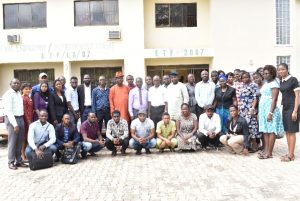
Dr. Obadina added that the ability to capture, manage, process, analyze and interprete data became more important than ever with the emergence of Bioinformatics as a tool to facilitate biological discoveries more than a decade ago.
He also clarified that, “Bioinformatics is a science field that is similar to but distinct from biological computation, while it is often considered synonymous with computational biology. Biological computation uses bioengineering Biology to build biological computers while Bioinformatics uses computation for better understanding of biology”.
Dr. Obadina added that “Bioinformatics and Computational Biology involve the analysis of biological data, particularly DNA, RNA, and protein sequences”.
The Dean, College of Biological Sciences (COLBIOS), Professor Oluseyi Akinloye equally charged the participants to take the Training with utmost interest.
He thanked the organisers and the University for making the Training free of charge to participants disclosing that conferences in Bioinformatics in other climes are capital intensive.
The Bioinformatics class facilitator, Mr. Oluwaseyi Babarinde of the ICTREC introduced participants to the IBT team from FUNAAB and also enlightened the participants on the mode and time of learning throughout the period of the Training.
Mr. Babarinde informed that this is the first edition of the Training in FUNAAB, stressing that it is a 3-month intensive course to be organised annually in order to develop BioInformatics capacity, build core BioInformatics infrastructure and network, support researchers and their projects so as to ensure retention of BioInformatics expertise in Africa.
Other members of the IBT class are Mrs. Kehinde Dada, Mr. Emmanuel Essienekpo, Dr. Adeyemi Adenaike, Mr. Pius Okolie, Mr. Ibiwunmi Oloye, and the System Administrator, Mr. Olajide Obanla.
Our Related Post
- Dr. AGWUEGBO, Samuel Obi-nnamdi
- IBT Course Has Impacted Us — Staff
- FUNAAB will sustain CEADESE Programmes, VC Assures
- FUNAAB Embraces FG Initiative on Power
- No Challenge is Insurmountable – Registrar

